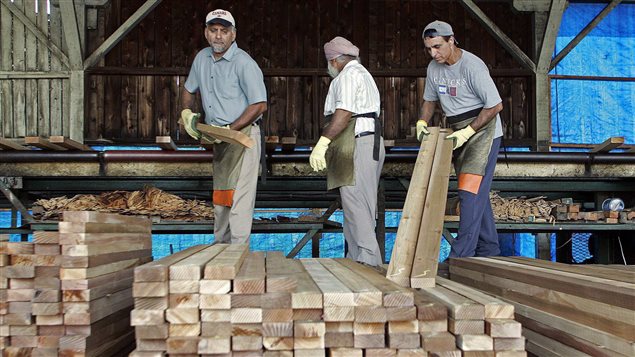Canada and the United States appeared poised for another softwood lumber trade war even as diplomats from both countries met in Washington today to try to untangle a complicated logjam of competing interests.
In a joint statement, U.S. Trade Representative Michael Froman and Canadian Minister of International Trade Chrystia Freeland said negotiators were meeting in Washington this week.
“In our effort to reach a new agreement on softwood lumber, we and our officials have been intensively engaged in government-to-government sessions, in meetings with our respective producers and other stakeholders, and in dialogue with state and provincial governments,” the statement said.
“The United States and Canadian governments are committed to continuing negotiations in an effort to achieve a durable and equitable solution for North American softwood lumber producers, downstream industries and consumers.”
- Canada-US lumber deal, back again, still bad for Canada
- Little headway reported in softwood lumber talks
Unfair competition?
U.S. softwood lumber producers would like to limit the market share of Canadian lumber as much as possible, while Canadian producers would like to grab as much of that market as they can.
U.S. producers allege that Canadian lumber is subsidized because most of it is harvested on public provincially owned lands, unlike the U.S. where most of the timber is harvested on privately owned lands. Ottawa, on the other hand, has successfully argued in both, NAFTA and WTO trade tribunals that the fact that most of Canadian timber is harvested on public lands in no way amounts to a subsidy.
The last trade dispute between Ottawa and Washington ended with a 2006 deal that expired in October 2015. At the time, both sides agreed to a so-called “standstill period” for a year after that to negotiate a new deal.
That standstill period expires today and without a new treaty, the U.S. lumber industry has made it clear that it will petition Washington to impose new tariffs on Canadian softwood lumber. Canadian producers will be forced to pay those tariffs even as they once again challenge the trade measure in both, NAFTA and WTO trade tribunals, as well as trying negotiate a new deal with Washington.
Washington could slap preliminary duties on Canadian softwood exports to the U.S. six months after the coalition of American lumber producers files a complaint of unfair trade with the U.S. Department of Commerce, which could happen as early as tomorrow. Canadian producers will then have start paying duties in March 2017, and in some cases these duties can even be retroactively applied for up to 90 days. The last dispute, cost Canadian lumber producers $5.3 billion.
Market share to be negotiated
The negotiators will work to meet the mandate agreed to by President Barack Obama and Prime Minister Justin Trudeau when they met in Ottawa in June, the joint statement by Freeland and Froman said.
That new agreement will be designed “to maintain Canadian exports at or below an agreed-upon U.S. market share to be negotiated, with the stability, consistency and flexibility necessary to achieve the confidence of both industries,” they said in a joint statement.
“If there is to be a deal, it must recall a principled purpose: that the Canadian softwood lumber industry does compete fairly in North America and pays a fair market price for timber, and that our forestry regimes are market-based,” said a statement by Richard Garneau, president and CEO of Resolute Forest Products Inc., one of the largest Canadian producers. “However, if we are to go down the litigation route, the Canadian industry will need the full backing of the federal government to avoid being forced into a deal brought about by undue financial pressure by the U.S. government’s actions at the border.”
With files from The Canadian Press and Reuters







For reasons beyond our control, and for an undetermined period of time, our comment section is now closed. However, our social networks remain open to your contributions.